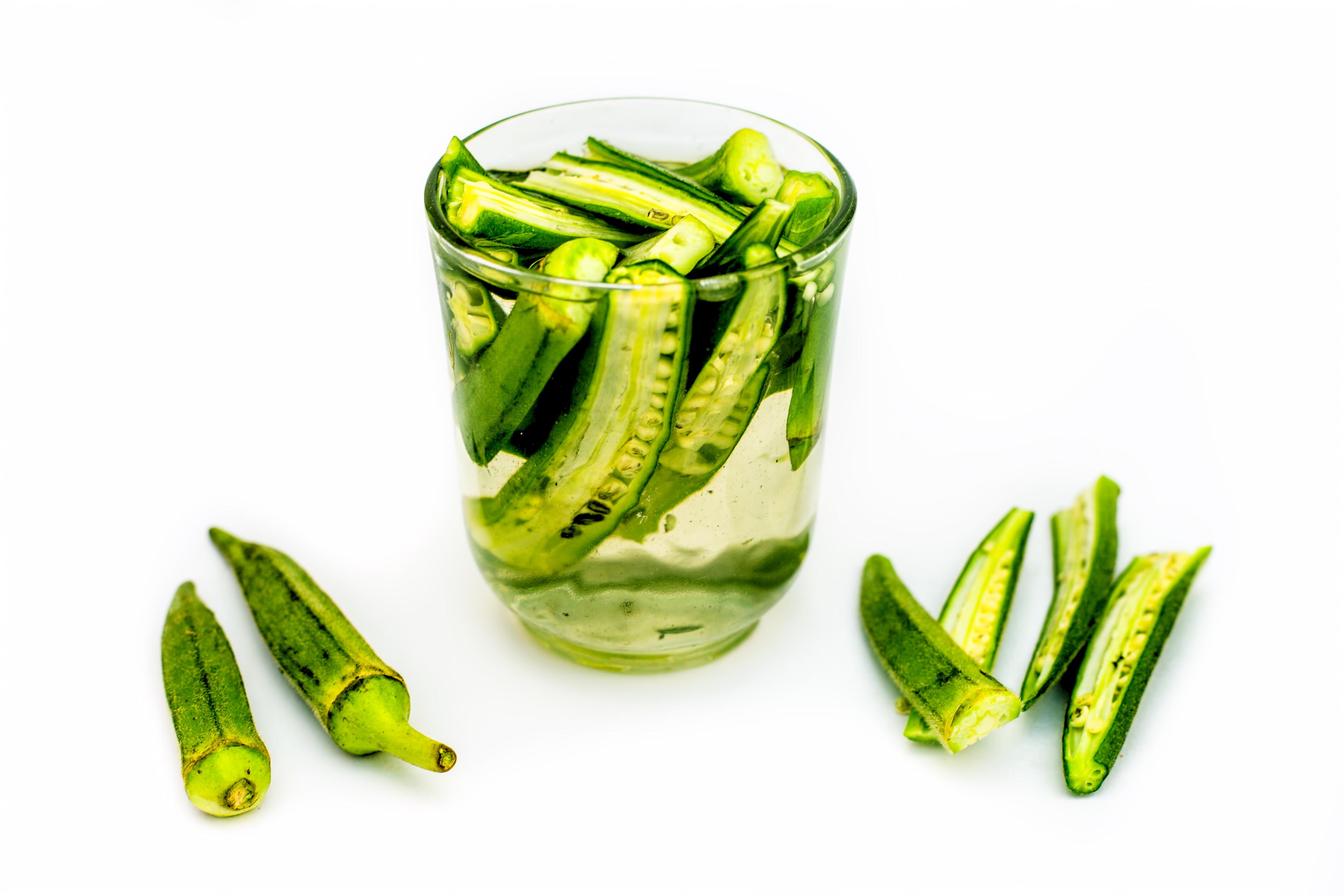Does Okra Water Have Health Benefits?

Isabella Cannon
| 3 min read


Medically reviewed by Shanthi Appelo, MS, RD
Okra water is a drink made by soaking okra pods in water for up to 24 hours. The drink is trending for its thought to offer health benefits like reducing blood sugar levels, supporting weight loss and improving digestion. While some research supports the health benefits of the okra plant, research specifically on okra water is lacking.
What is Okra?
Okra is a flowering plant with edible seed pods that contains antioxidants, fiber and vitamins A and C. Its disease-fighting nutrients promote heart health, blood sugar management and better digestion, according to the Cleveland Clinic.
Extracts of young okra pods have also been reported to display moisturizing and diuretic properties, whereas the seeds of this plant have been reported to possess anticancer and fungicidal properties, according to one review study.
Is okra water effective?
Drinking okra water can support hydration by increasing water intake. Water is essential for every cell in the body to function correctly. Water aids the digestive system, helps prevent constipation, flushes toxins from the body, keeps your joints and muscles lubricated and helps regulate body temperature, according to the Mayo Clinic.
However, there is no evidence to support that okra water offers significant health benefits, as the nutrients from the plant are unlikely to be effectively extracted into the water for absorption by the body. Talk to your healthcare provider about better solutions to increasing your vitamin and mineral intake.
Eating Okra
Eating okra offers up more legitimate benefits than drinking okra water. Okra is a high source of vitamins C and K1. Vitamin C is a water-soluble nutrient that contributes to your overall immune function, while vitamin K1 is a fat-soluble vitamin that’s known for its role in blood clotting. Okra also contains some calcium which is important for strong bones. In one-half cup of cooked okra, you get about 6% of your daily calcium, according to the Cleveland Clinic.
There are lots of ways to eat okra. You can:
- Add it to salads or soups.
- Roast with other veggies in olive oil.
- Replace it for green beans in any dish.
Risks of okra
Okra is generally considered safe for most people. However, eating excessive amount of okra or drinking okra water daily may not be a good choice for those with a history of kidney stones. According to a Food Science and Nutrition study, Okra contains oxalates, which are known to contribute to the formation of kidney stones.
People with diabetes or who are prescribed metformin, should consult a physician before considering frequent okra consumption. Okra contains myricetin, which may help improve insulin sensitivity. On the flipside, research in rodents suggests excess okra intake may block metformin activity. Further research is necessary to understand the relationship between okra and diabetes treatments.
Despite its popularity online, there is not enough research to prove drinking okra water provides any of its claimed benefits. Talk to your health care provider before implementing okra into your diet or for recommendations on improving your overall health.
Photo credit: Getty Images
Related:





